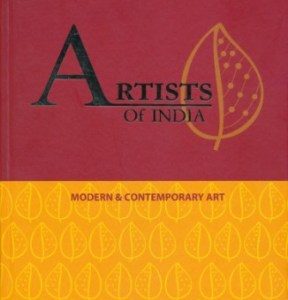Description
Let us know the Author Dr. Felix Podimattam OFM Cap.
Dr. Felix Podimattam is one of the best known Indian authors in the field of ethics and morality. He holds a Master’s degree in Political Science from the University of Mysore, a Licentiate degree in theology from Pontifical Gregorian University, Rome and a Doctoral degree in Moral Theology from the Alphonsian Academy, Rome. His doctoral thesis ‘The Relativity of Natural Law’ is acclaimed as exceptionally excellent. The thesis was guided by the eminent Moral Theologian, Bernard Haering, who influenced the renewal of Moral teachings of the Church during and after the Vatican II. Dr. Podimattam is resident professor at St. Francis Theological College, Kottayam and has been the founding member and first president of the Indian Moral Theologians Association. Most of his books, numbering over 120, are published by Media House, Delhi. Having gone through most of his books, let me highlight the most significant characteristics of his writings. First of all, he engages in a creative dialogue with other authors on every topic of discussion. Second, he tries to compare and integrate, as far as possible, the visions and views of other religions. Third, he holds a very positive attitude to life in general, especially to human body, sexuality, etc. Fourth, he is a keen observer of the socio-political and religious happenings in the society and responds to them immediately. His book on ‘Fast unto death’ during the upheaval of fisher people’s struggle in the eighties and his book on ‘Da Vinci Code’ a few years ago, where he gives a theological response to journalism with half-truths, are worth mentioning here. Fifth, he has taken keen interest on equal rights and dignity to women in the Church as well as in the society. In the context of widespread discrimination against women in the Church and society he published a six-volume work titled: ‘In praise of the woman’. Sixth, he holds on to the sacredness of life in all its forms and he has published books on topics like abortion, euthanasia, etc. Seventh, we find in his writings a harmonious blending of the traditional wisdom with its emphasis on fundamental Christian values as well as the findings of modern sciences like psychology, sociology, anthropology, etc, as well as the latest fruits of biblical exegesis.
The latest contribution of Dr. Podimattam, which may be acclaimed
The Making of a Masterpiece
The latest contribution of Dr. Podimattam, which may be acclaimed as his masterpiece, is: The Ten Commandments in the Law of Christ, a 20 volume work on the Decalogue. His vast knowledge on the subject gained through painstaking research, his teaching experience in various theological institutes stretching out over four decades and frank discussions with eminent thinkers have gone into this work. These books provide us with a re-interpretation of the commandments keeping in mind the genuine concerns of the people of God and at the same time remaining absolutely loyal to the teaching of Christ – “Christ did not come to abolish the law and the prophets, but to fulfil them”.
CONTENTS
INTRODUCTION
L SEX FANTASY
1.1. Psychological Considerations
1.2. Moral Reflections
13. Pastoral Conclusions
2. SEX PLEASURE
2.1. Critique of Sexual Hedonism
2.2. Inadequacy of Traditional Doctrine
2.2.1. Lightness of Matter in the Domain of Sex
2.2.2. Sex and Marriage
2.2.3. Sex and Procreation
2.2.3.1. Religious Dimension of Sexual Pleasure
2.2.3.2. Relational dimension of sexual pleasure
2.2.3.3. Reproductive dimension of sexual pleasure
2.2.3.4. Recreational dimension of sexual pleasure
2.2.3.5. Primacy of religious and relational dimensions
2.2.4. Sexual pleasure as criterion of chastity
2.3. Toward a Better Theory
3.MASTURBATION
3.1. Updated Biological Information.
3.1.1. Inadequacy of Past Knowledge
3.1.2. Alleged Harmful Effects of Masturbation The Ten Commandments in the Law of Christ
3.1.3. Statistics on Masturbation
3.2. Updated Psychological Information
3.3. Updated Theological Information.
3.3.1. Jesus’ Attitude to Masturbation.
3.3.2. Masturbation and Scripture.
3.3.3. Masturbation and the Magisterium.
3.3.4. Masturbation and Tradition
3.3.5. Masturbation and Other Churches
3.3.6. Dynamism of Sexuality
3.3.7. Masturbation and Grave Matter
3.3.8. Masturbation and Right P.eason
3.3.9. Impossibility of Sudden Transition from Grace to Sinl
3.3.10. Weakness of Traditional Arguments
3.4. Morality of Masturbation in Light of Updated Information
3.5. Schools of Thought concerning Morality of Masturbation
3.5-1. First School — “Generally Mortal Sin” Opinion
3.5.2. Second School – “Generally Not Mortal Sin” Opinion
3.5.3. Third School – “Rarely Mortal Sin” Opinion
3.5.4. Fourth School – “Never Mortal Sin” Opinion.
3.5.5. Fifth School – “Sometimes No Sin at All” Opinion
4.HOMOSEXUALITY
4.1. Nature Of Homosexuality
4.1.1. Description of Homosexuality
4.1.1.1. Constitutional homosexuality
4.1.1.2. Behavioral Homosexuality
4.1.2. Incidence of Homosexuality
4.1.3. Change of the Homosexual Orientation
4.1.4. Homosexuality and Marriage
4.2. Moral Aspects of Homosexuality
4.2.1. Moral Aspects of Constitutional Homosexuality
4.2.2. Moral Aspects of Behavioral Homosexuality.
4.2.2.1. Official Teaching of the Church.
4.2.2.2. Evaluation of the Official Teaching of the Church .228
4.3. Moral Aspects Of Behavioral Homosexuality: The Radical Approach
4.3.1. Claim of the Radical Approach
4.3.2. Weakness of the Radical Approach
4.4. Moral Aspects of Behavioral Homosexuality: The Rigid Approach.
4.4.1. Claim of the Rigid Approach
4.4.2. Weakness of the Rigid Approach.
4.4.2.1. Inadequate interpretation of scripture
4.4.2.2. Defective Understanding of Tradition
4.4.2.3. Faulty Character of Theological Reasoning
4.4.2.4. The Use and Abuse of the Language of “Natural” and “Unnatural”
4.4.2.5. Celibacy and Abstinence is No Solution for Most Homosexuals
4.4.2.6. Can Grace Do All Things?
4.5. Moral Aspects of Behavioral Homosexuality: The Moderate Approach.
4.5.1. Homosexual Acts are Always Evil
4.5.2. Not Every Form of Homosexual Expression is Necessarily Sinful
4.5.2.1. Support from Scripture
4.5.2.2. Support from contemporary theologians
4.5.2.3. Support from Protestant Churches
4.5.2.5. Support from the experience of responsible homosexuals
4.5.2.6. Support from Theological Reasons
4.5.2.6.1. No Intrinsic Relationship between Sex and * Marriage.
4.5.2.6.2. What is Homosexual Behavior is Differently Understood
4.5.2.6.3. Possibility for Two Actions Which Have the Same External Structure to Be Objectively Morally Different
4.5.2.6.4. Parallel between Sexuality and the Christian Faith.
4.5.2.6.5. In a Sense, We Should Speak of Sexual Moralities in the Plural
4.5.2.6.6. Application of the Principle of Lesser Evil
4.5.2.6.7. Application of the Principle of the Practical Ideal
4.5.3. The Morality of Bisexual Acts
4.6. Pastoral Aspects of Homosexuality
4.6.1. Avoid Homophobia
4.6.2. Develop the Correct Christian Attitude.
4.6.3. No Penalization of Homosexuals
4.6.4. Homosexual Marriage
5.6.5. Homosexuality and Vocation
CONCLUSION
BIBLIOGRAPHY




Reviews
There are no reviews yet.